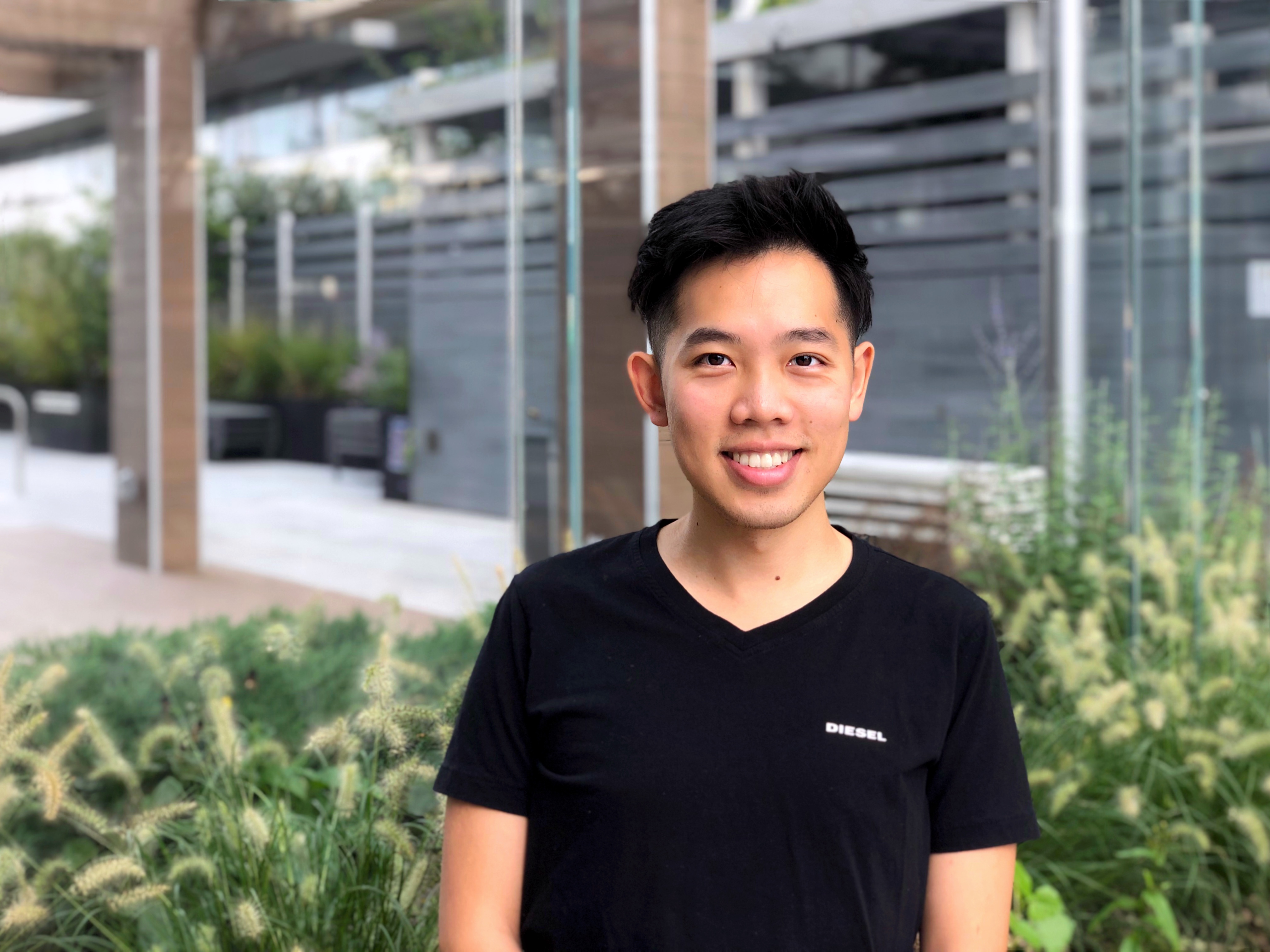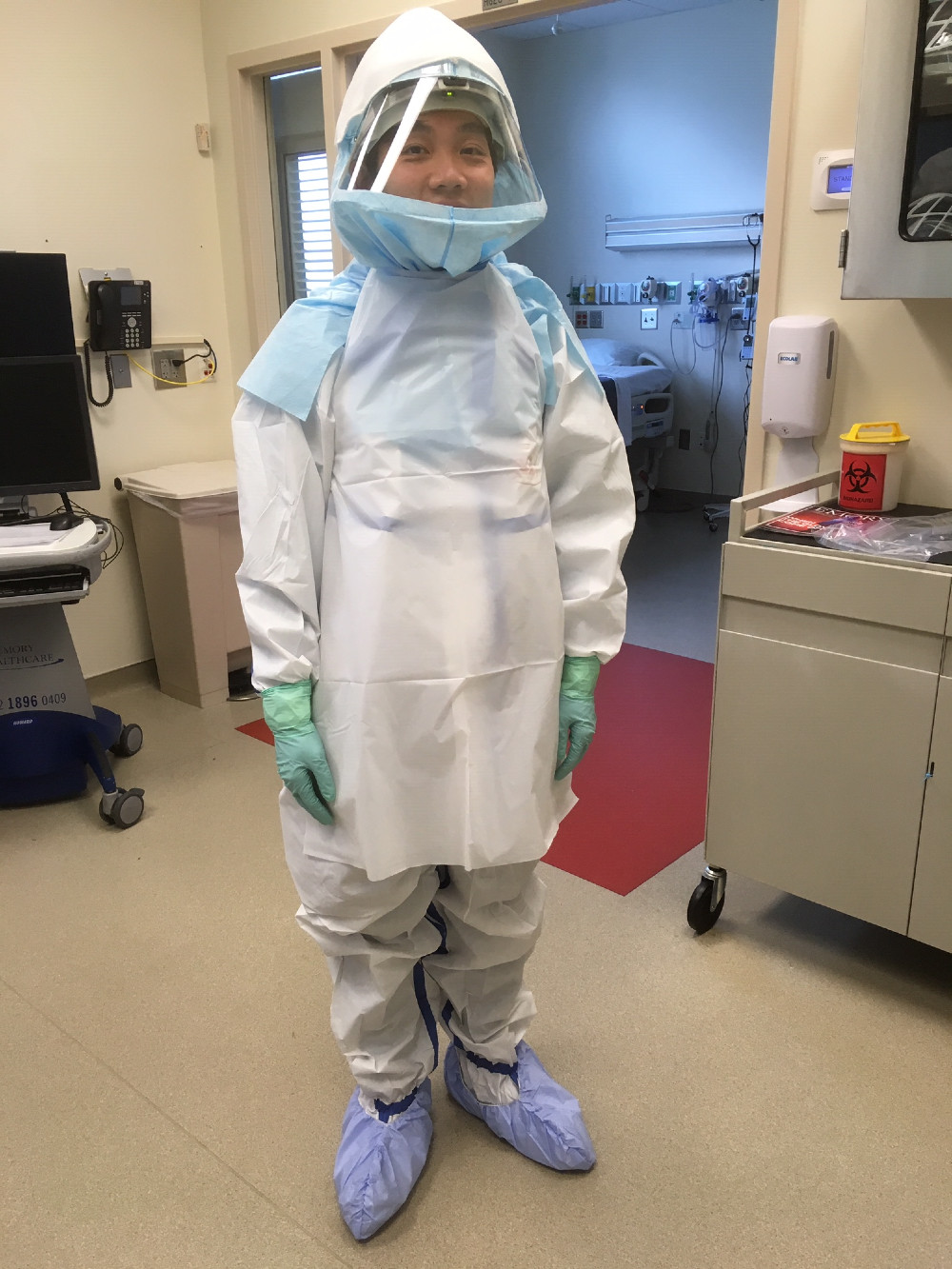Lessons From Ebola
Alex Chen, doctoral candidate in anthropology, studies emerging disease preparedness.
Many viruses travel effortlessly through air. To curb their spread indoors, hospitals use sophisticated ventilation systems and provide clinicians with personal protective equipment, like the coveted N95 masks that have come to symbolize the ongoing COVID-19 pandemic.
If you ask Alex Chen, a doctoral candidate in the combined M.D./Ph.D. Program’s Anthropology track, the best defender against airborne disease is air itself.
“You know those big hoods that are like helmets—the PAPRs [powered air-purifying respirators] people wear when studying dangerous pathogens? They have a constant flow of air that pushes contaminants away from your face,” Chen says. “The thing that will protect you the most is not a solid object—it’s a moving wall of air.”
Chen’s interest in the relationship between air and disease inspired him to apply for a graduate fellowship with the Penn Program in Environmental Humanities, which is currently engaged in a year-long conversation about the four elements: air, water, earth, and fire. The fellowship has supported preliminary research for his dissertation on U.S. hospitals’ emerging disease preparedness—a topic he homed in on well before the novel coronavirus surfaced.
“I was doing a master’s program in design studies when the West African Ebola epidemic struck, and at the time I was learning more about anthropology,” says Chen, who found that exploring the Ebola crisis allowed him to synthesize the knowledge he had developed as an undergraduate architecture and pre-med student at Cornell. “I could think about issues involving infrastructure and space, as well as issues related to caring for individual patients face-to-face.”
Building on his master’s thesis—an evaluation of how emergency medical technicians approach dangerous situations—Chen recently began interviewing healthcare providers nationwide about their institutions’ Ebola protocols. He was especially riveted by his visit to the biocontainment unit at Emory University, where the few Ebola patients within the U.S. were treated successfully in 2014.
“In anthropology, we gather how people make sense of the world. I want to know how providers on the front lines approach the problem of caring for patients when the logic of emerging diseases demands separation from the people they need to heal,” Chen says. “How do they plan to adapt their practices, protocols, and facilities to balance patient care with biocontainment, and how do they teach others to scale these strategies to meet their particular needs?”
Chen planned to continue compiling this “ethnography of clinical preparedness” while also visiting with CDC epidemiologists involved in the international response to the West African Ebola epidemic and attending biocontainment workshops—but the coronavirus has stalled his travels.
“My project will be different from what I imagined, but maybe this is a time to reorient and look at the line between emerging disease preparedness and response. I’m interested in how we transition from lessons learned before—the literature and protocols created for Ebola from 2014 to 2016—to emerging diseases. How do you turn a protocol for something with known properties around to work with something you don’t know much about at all?” he wonders, noting that he will also weigh global dynamics by contrasting guidelines in parts of the world with widely varying resources.
While collecting early data, Chen visited a small community hospital where staff primarily highlighted their tight-knit group of volunteers, leading him to think about preparedness in a new way. The crux of being prepared, he realized, lies in community—not in high-tech isolation rooms or stockpiles of equipment.
“Single institutions cannot bear the brunt of these massive societal pandemics,” he says. “This is where we can see physical actions that constitute community: volunteering in a hospital, giving blood, running food pantries, donating PPE. No matter what strikes—a hurricane, an earthquake, a pandemic—these are our safety nets.
“Preparedness is a measure of faith. The investment you make in people to create that safety net will eventually come back around, and you will be paid in preparedness. And that is what I think is actual preparedness—understanding our mutual responsibilities to each other.”




